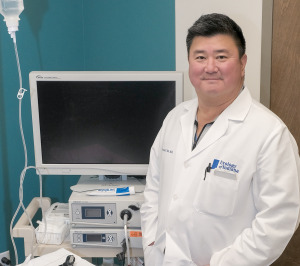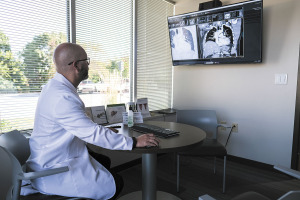
IU Health surgeon among first to use new shoulder replacement technique
Dr. Jacob Triplet, at IU Health Ball Memorial Hospital in Muncie, recently began using the Stryker Mako SmartRobotics device — a robotic arm surgical system that assists him during a reverse shoulder replacement.



















